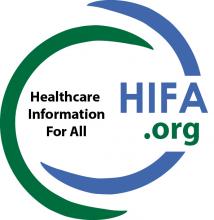
Quote of the month: "Asking the question 'What matters to you?' rather than 'What is the matter with you?' can be done in any healthcare setting. In fact healthcare will be more efficient if health care professionals take that approach. So much waste comes from making assumptions about what it is that people want and need" Daniel Munday, Consultant in Palliative Medicine and Health Service Research, International Nepal Fellowship, Kathmandu, Nepal
Adopted by the 2016 World Health Assembly, Integrated People Centred Health Services (IPCHS) are regarded by the WHO as essential for achieving Universal Health Coverage, which is also one of the newly-elected Secretary-General’s priorities. Implementing IPCHS requires a new model of care, with health systems built around people rather than disease, so that “everyone gets the right care, at the right time, in the right place”. This will also necessitate a shift in the provider-patient relationship, as described in our Quote of the Month. We wholeheartedly welcome and support the IPCHS vision. But, as HIFA Coordinator Neil Pakenham-Walsh pointed out during June, “people-centred care is a mirage unless the basic needs of healthcare providers are met”. The needs of patients and providers are closely intertwined.
“The hidden truth behind prescription medications”
According to WHO, “in some countries only one in three people have the risks of their treatment explained to them." This may be due to a range of factors, including time/patient overload, communication skills, and lack of access to information/knowledge. In addition, an article by Sile Lane showed that approximately 50% of clinical trials of medicines in current use have never published their results, leaving prescribers unaware of potential risks to patients and therefore unable to make informed choices of medication for them. The article also noted that failure to publish and interpret findings can have devastating consequences. Lorcainide was an anti-arrhythmic agent, tested in clinical trials in the US and UK in the 1980s. The results showed that those who took the drug were far more likely to die during the trial than those who did not receive it. They were only published more than ten years after it went on sale. In that period, it’s estimated that more than 100,000 people died from taking the drug.
Prescribers and users of medicines: what are your experiences - positive or negative - in relation to the availability of reliable information on medicines? Join HIFA
“Medicine information leaflets 'too scary', say experts
Last month, the HIFA Blog reported on the ‘ticking time bomb’ in Haiti where street vendors illegally sell counterfeit or expired medicines to citizens, often providing incorrect advice on how to use them. During June, HIFA members discussed a survey of about 2000 British adults and 1000 general practitioners by the Academy of Medical Sciences which found that patients in the UK are receiving too much information about medicines, and are often confused by it. A third of the public trusted evidence from medical research, while two-thirds trusted the experiences of family and friends when it came to taking medicines. Many users of medicines in low- and middle-income countries face the same problem as those in the UK - that is, if they get any information at all (which they often don't) and if the information is in their language (which it often isn't). The HIFA Project on Information for Prescribers and Users of Medicines is leading the HIFA community to address this major global health issue. UK patients felt that medicine information leaflets focused too much on the potential side-effects of medicines and not enough on their benefits. HIFA member Joseph Ana, lead consultant at the Africa Centre for Clinical Governance Research and Patient Safety in Calabar, Nigeria, attributed this to the increase in recent years of litigation actions brought against prescribers who did not provide sufficient information about side-effects. All the above might help explain why fewer than 50% of patients continue with medicines they have started taking. Like the people of Haiti who eagerly hand over money for antibiotics which may do more harm than good, UK patients who stop taking appropriately-prescribed antibiotics also unwittingly contribute to the rise of antimicrobial resistance.
What is your experience of medicine information leaflets either as (a) a prescriber or (b) patient? Join HIFA
Librarians and health information services: tackling the opioid crisis, increasing access to health information
Tsunamis, earthquakes; terrorism; biological, chemical or nuclear warfare; disease outbreaks, global pandemics, antimicrobial resistance… In the 21st century, the range of threats to human health and survival is continually increasing. At the same time, new groups of ‘people-centred’ caregivers are starting to deal with emergencies in their local communities. Long viewed as ‘guardians of safe spaces for children’, US library staff members have begun taking on the role of first responder’ in drug overdoses. The so-called ‘opioid crisis’ has seen a rapid increase in the use of prescription and non-prescription opioids in the United States and Canada in the current decade. A significant number of overdoses occur in libraries, which often serve as refuges for homeless people and deliver essential services to impoverished communities. A new HIFA project has been established, with funding from Public Health England, to leverage the individual and collective HIFA membership to support communication, understanding and advocacy for this group. The Libaray and Information Services Project will focus on the role of LIS in global health, initially looking at information needs in emergencies, disasters, conflict and disease outbreaks. We invite everyone with an interest in global health, disasters, disease outbreaks and humanitarian response to join us to explore these and other questions in a major thematic discussion on HIFA, starting 17 July and continuing to 18 August 2017. More information here. This HIFA Blog is written by Martin Carroll

